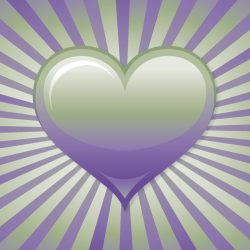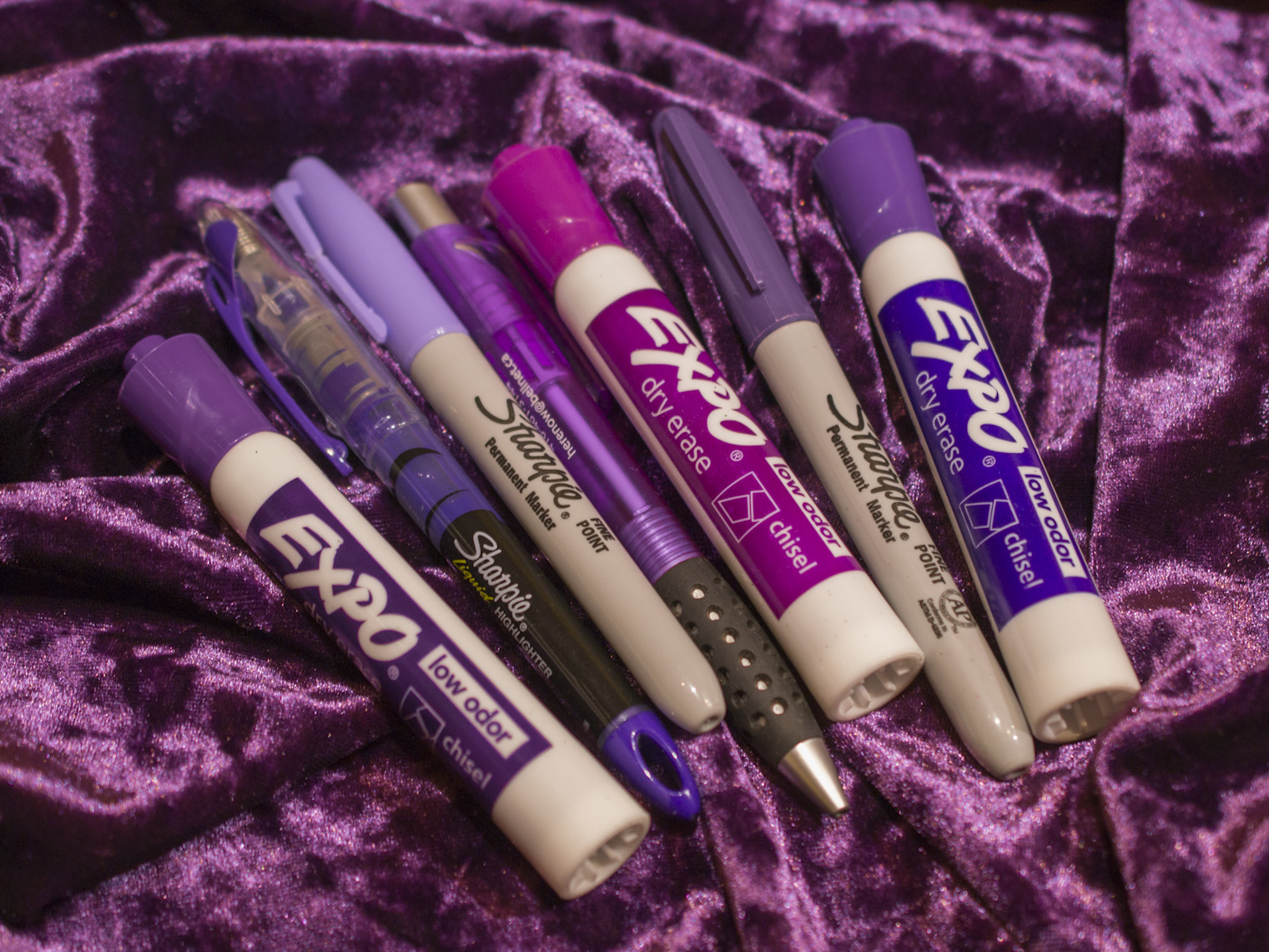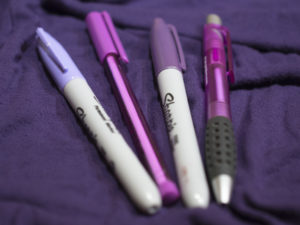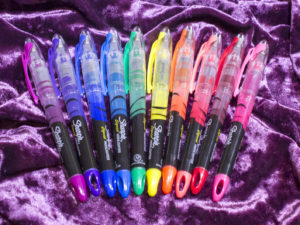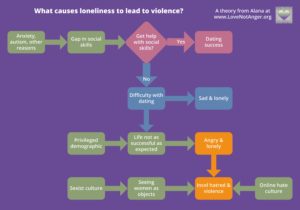I didn’t invent the concept of involuntary celibacy. People have had difficulty with dating for a very long time. Inexperienced people have long been stigmatized as virgins and losers.
In 1996, in my mid-twenties, I started dating my first partner, after getting psychotherapy to reduce my anxiety. I realized: If I could start dating after adolescence, other people could too. We needed research and support.
I did some academic literature-searching and found nothing relevant. (I missed Brian Gilmartin’s “Shyness and Love” tome.) Instead, I took a grassroots approach.
The original project
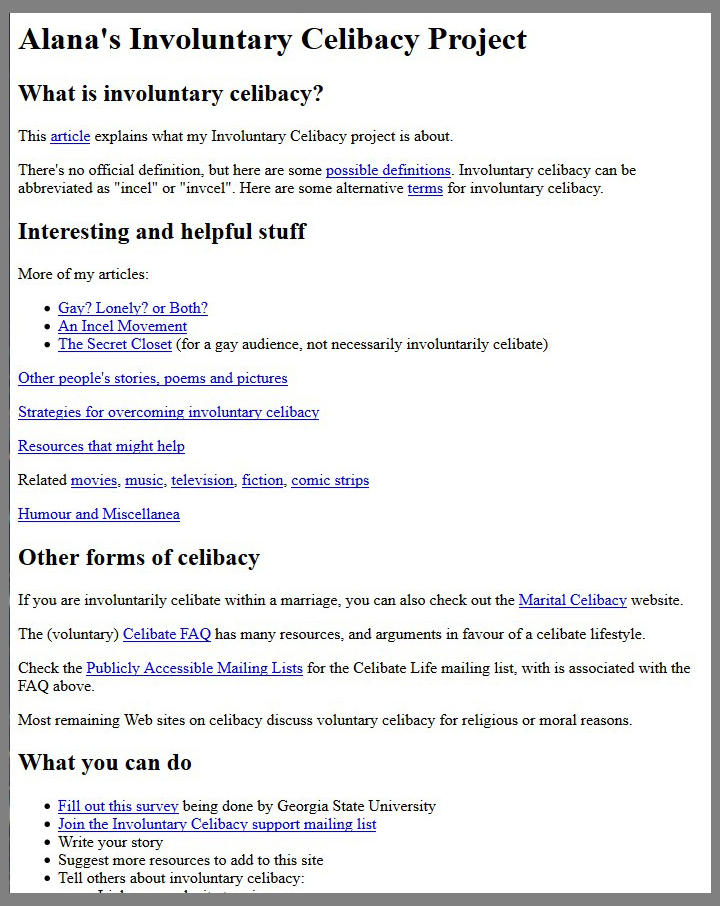
“Alana’s Involuntary Celibacy Project” was created in 1997. It was a plain-text website, hand-coded in HTML, back when the World Wide Web was a cool new thing. I wrote a few pages about the issue, publicized the site on some Usenet newsgroups and a local free newspaper, and people started sending me their stories.
Some media have erroneously reported the start date as 1993 because around that time, a fellow student awkwardly told me that he had never dated anyone, and that was part of the inspiration for the original website.
Here’s more about the origins of the terms “involuntary celibacy” and “incel”.
The first support forum
In 1997, I got a friendly geek to set up a mailing list on his server for people to talk about Involuntary Celibacy. Support groups were a new thing on the internet at that time, so this was the first opportunity for people to connect internationally about these dating difficulties.
The original forum included a few hundred people – lots of straight men and also a few women and queer men. People were friendly and supportive to each other, writing at length about struggles in their lives. Mailing list members were often depressed and frustrated, but not at all violent. I did not need to moderate the forum.
After a few years, I stopped working on the website or participating on the mailing list. It wasn’t a helpful place to discuss my own issues. I couldn’t really face reading the forum messages often – perhaps because people shared so much sadness and despair. Or maybe it was because some of the men were clueless about women, lumping us all together as intimidating creatures, looking for simple formulas to “get a girl”. At that time I didn’t recognize the emotional toll it takes to read sexism and negativity. I was open about my lack of mental-health qualifications, which would have helped a lot in running a support forum. And I certainly didn’t have enough life experience to give good advice!
Drifting away
Feeling guilty for not accomplishing all of the project’s original ambitions, it was time to admit that I’d drifted away. I hate thinking about the website, the incel project, the lonely life, the years of therapy it took me to overcome enough anxiety to date anyone. I had always felt ashamed of my dating difficulties, and did not want to keep reliving my youth through other people’s struggles.
Someone from the mailing list offered to take over, and he set up a new website and forum. This was sometime around the year 2000, but the details are lost in the mists of time. By 2005, my original website was riddled with broken links, and I shut it down soon after.
I have not participated in any incel forums since about 2000, so I did not observe when and how they became misogynist or exclusionary. This Vox article recounts the evolution of various incel forums after that time, thanks to the history-keeping of ReformedIncel.
Men’s frustration led to misogyny and anti-feminism, reflecting some ideas emerging in American alt-right culture. Murderer Elliot Rodger’s 2014 manifesto twisted the incel movement into an ideology that would be farcical if it were not so disturbing and dangerous.
Discovering incel radicalization
There are so many shootings happening in the US that I didn’t even notice Rodger’s incel connection until 2015, while reading a magazine article. I was upset, writing “What have I wrought?!” to a few friends who knew about my original incel project. They sympathized instead of shaming me.
So when journalist Peter Baker called, I agreed to be interviewed for this Elle article, hoping to reduce the stigma of virginity and dating difficulties. In the back pages of a fashion magazine, the article didn’t make much of a splash. I went back to ignoring inceldom and the world continued to ignore lonely people, until April 2018.
Responding to the van murders
I was on the Toronto subway when a delay was announced, due to a police incident at the far end of the line. Transit delays are pretty common so I was mainly concerned about getting to my destination on time. Later I got the news about the van murders, and it took a day for the media to find out that the attacker was angry about being incel. My phone started ringing and buzzing with reporters from big media outlets.
Meanwhile my social media stream was filled with people making comments like “incels are human garbage”, and I felt like they were attacking all the lonely single people including my past self. I felt an existential anger, deeply frustrated that my old project was misunderstood by the general public as well as horribly twisted by men in the movement. My original purpose was to get MORE respect and support for lonely virgins, but people became even LESS tolerant of all the lonely virgins because some of them have nasty misogynist attitudes and a few committed murder. The project backfired.
I considered laying low and turning off my phone, but this was a chance to get out a message to the world. I prepared my thoughts about what causes romantic loneliness and incel anger, and decided to let go of the word “incel” – I can’t convince the world to go back to my original meaning of incel.
Doing something useful
After talking to a few newspapers, I found that they were focused on the fearsome spectacle of murderous rage. They were uninterested in reporting my concern about stigma against non-violent people who are single, lonely, inexperienced, anxious, autistic or awkward. Journalists kept asking me how I felt, but I had a complicated tangle of feelings, not the visceral upset that people expected. So I turned down media interviews for a few days, exhausted from my despair.
Everyone told me that I bear no responsibility for the violence or how my ideas were warped. But I wondered what I could have done differently back in the 1990s, if I had better understood feminism and masculinity, psychology and how to run a support group. I wondered what I could do now.
The next morning I woke up and decided to do something constructive. The world still needs awareness, research and support about dating difficulties. I drafted some strategies, got ideas from friends, set up the first version of this website, and started the Love Not Anger project in April 2018.
Laying low again
In 2019, I had the time and energy to conduct a survey about dating difficulties, with a report of stories and statistics from 713 people. Without academic backing, this cannot be published in a peer-reviewed journal. At that time I was not able to find non-profits or grants to support this work. Because I am not a psychologist, I am not equipped to research or help people resolve dating difficulties.
So I wrote what I do know on this website, and continued with my regular career. In November 2018, I took a very challenging job that leaves me with no time or energy for the Love Not Anger project.
So the project is now inactive. I hope that by writing and speaking about the situation of incel and inexperienced people, I have made a contribution that will inspire others to do something positive.
